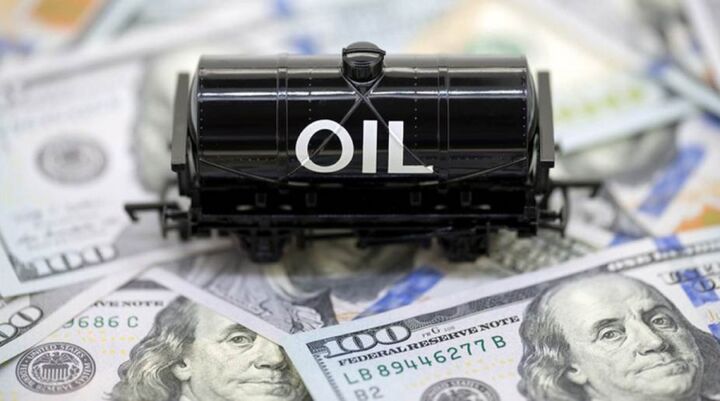Nigeria has recorded a significant boost in its foreign earnings after generating about $2.21 billion from crude oil exports to the United States, marking one of the strongest revenue flows in recent years from its transatlantic trade. The development comes amid shifting global energy dynamics and renewed efforts by Nigeria to consolidate its market share among traditional buyers while also seeking new destinations for its crude.
According to industry data, the volume of crude supplied to the United States has grown steadily in 2024, with improved compliance to production quotas and lower crude theft bolstering output levels. Analysts note that the United States, despite increasing domestic shale oil production, remains a key buyer of Nigerian grades due to their light, sweet quality which makes them suitable for American refineries. The $2.21 billion inflow reflects both volume stability and relatively favorable pricing within the international market.

Energy experts attribute Nigeria’s improved earnings to ongoing reforms in the oil and gas sector, as well as stronger monitoring of pipelines which has drastically reduced crude theft to its lowest level in over a decade. The Nigerian Upstream Petroleum Regulatory Commission (NUPRC) recently disclosed that daily crude losses have dropped to below 10,000 barrels, a sharp contrast to the hundreds of thousands lost in previous years. This has restored confidence among buyers and enhanced Nigeria’s ability to meet contractual obligations.
Beyond the revenue gains, the trade underscores the continuing importance of the US-Nigeria energy relationship. While Washington has diversified its energy imports in recent years, Nigerian crude remains competitive because of its low sulfur content and efficiency in refining gasoline and jet fuel. Energy analysts observe that the resurgence of Nigerian crude in the US market is not just about immediate cash inflows but also a signal of improved credibility and reliability in Nigeria’s export system.
The $2.21 billion earning, however, comes at a time of mixed fortunes for Nigeria’s economy. Despite higher crude sales, government revenues remain under pressure from fuel subsidies, infrastructure costs, and debt servicing. Economists caution that while crude exports provide much-needed foreign exchange, Nigeria must guard against over-dependence on oil by accelerating diversification in sectors such as gas, agriculture, and manufacturing. They note that recent moves to attract investment into gas infrastructure, supported by Afreximbank’s $500 million financing deal, are steps in the right direction.
Meanwhile, industry stakeholders are urging the federal government to consolidate these export gains by improving refinery performance at home. With the Dangote Refinery ramping up production and other state-owned refineries undergoing gradual rehabilitation, Nigeria hopes to reduce its reliance on fuel imports while increasing value-added exports of refined petroleum products. A balanced approach, experts say, would strengthen the country’s external reserves, stabilize the naira, and reduce exposure to global crude price volatility.
The United States, for its part, continues to balance domestic energy security with international supply commitments. Nigeria’s role in this equation has grown increasingly vital as geopolitical uncertainties disrupt supply chains in other oil-producing regions. Market watchers believe that the $2.21 billion transaction is likely to deepen bilateral cooperation, particularly as both countries explore opportunities in clean energy transition while maintaining oil trade.
The figures also align with Nigeria’s improved compliance to OPEC+ quotas, as the country managed to hit 96 percent of its assigned production level in August. This marks a turnaround from years of underperformance, giving Nigeria more credibility within the cartel and strengthening its position in international negotiations. By meeting these obligations, Nigeria has been able to sustain steady crude flows to buyers like the United States without jeopardizing its commitments to other markets in Europe and Asia.
For ordinary Nigerians, however, the impact of these revenues is yet to be fully felt. Despite increased forex inflows, the naira remains under pressure, and inflation—though easing—continues to squeeze households. Analysts argue that better fiscal discipline, transparent management of oil revenues, and stronger investment in productive sectors are critical if crude export earnings like the $2.21 billion windfall are to translate into improved living standards.
Looking ahead, Nigeria is expected to maintain its crude trade with the United States even as it diversifies its buyer base. With energy transition debates intensifying, the country faces the dual challenge of maximizing oil revenues in the short term while investing in renewables and natural gas to remain competitive in the long run. The $2.21 billion inflow from the US highlights the continued relevance of oil to Nigeria’s economy, but also underscores the urgency of using current earnings to prepare for a future where fossil fuels may no longer dominate global energy markets.
Support InfoStride News' Credible Journalism: Only credible journalism can guarantee a fair, accountable and transparent society, including democracy and government. It involves a lot of efforts and money. We need your support. Click here to Donate
